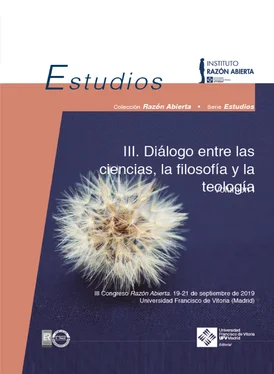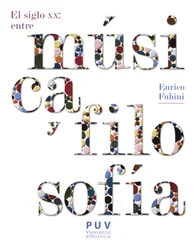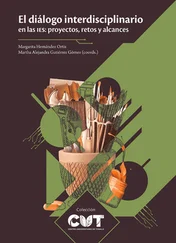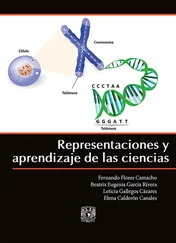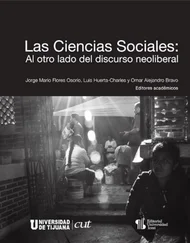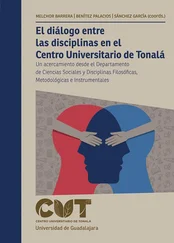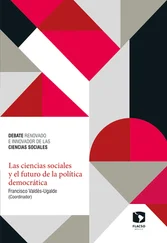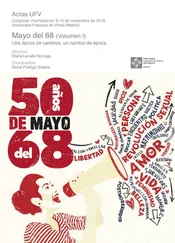María Lacalle - III Diálogo entre las ciencias, la filosofía y la teología. Volumen I
Здесь есть возможность читать онлайн «María Lacalle - III Diálogo entre las ciencias, la filosofía y la teología. Volumen I» — ознакомительный отрывок электронной книги совершенно бесплатно, а после прочтения отрывка купить полную версию. В некоторых случаях можно слушать аудио, скачать через торрент в формате fb2 и присутствует краткое содержание. Жанр: unrecognised, на испанском языке. Описание произведения, (предисловие) а так же отзывы посетителей доступны на портале библиотеки ЛибКат.
- Название:III Diálogo entre las ciencias, la filosofía y la teología. Volumen I
- Автор:
- Жанр:
- Год:неизвестен
- ISBN:нет данных
- Рейтинг книги:5 / 5. Голосов: 1
-
Избранное:Добавить в избранное
- Отзывы:
-
Ваша оценка:
- 100
- 1
- 2
- 3
- 4
- 5
III Diálogo entre las ciencias, la filosofía y la teología. Volumen I: краткое содержание, описание и аннотация
Предлагаем к чтению аннотацию, описание, краткое содержание или предисловие (зависит от того, что написал сам автор книги «III Diálogo entre las ciencias, la filosofía y la teología. Volumen I»). Если вы не нашли необходимую информацию о книге — напишите в комментариях, мы постараемся отыскать её.
III Diálogo entre las ciencias, la filosofía y la teología. Volumen I — читать онлайн ознакомительный отрывок
Ниже представлен текст книги, разбитый по страницам. Система сохранения места последней прочитанной страницы, позволяет с удобством читать онлайн бесплатно книгу «III Diálogo entre las ciencias, la filosofía y la teología. Volumen I», без необходимости каждый раз заново искать на чём Вы остановились. Поставьте закладку, и сможете в любой момент перейти на страницу, на которой закончили чтение.
Интервал:
Закладка:
Is this sustaining ground of all contingent beings God? It seems to me not only intellectually correct but also prudent both to note the features that this source of creation ex nihilo shares with God as understood in Judaism, Christianity, and Islam, as well as the possibility of rationally affirming the reality of this source of creation without implying that such an affirmation automatically entails a further faith commitment. This distinction provides an analytical basis for arguing against the constrictive scourge of metaphysical naturalism without immediately raising the additional, fraught, complicated issue of faith and religion – an important consideration given the character of our current, prevailing intellectual culture. Strategically, this distinction opens a space for rational dialogue – at least with those who are not irrational fundamentalists in their materialism – to question and, if they are rational, eventually to reject metaphysical naturalism without any adjunct pressure also to make some sort of faith commitment. 19 Of course, perhaps some who do so will come to faith as well, and in ways consistent with their rational reflection on the contingency of creation. But creating a non-threatening space for dialogue seems desirable from a purely pragmatic point of view, considering how many problematic expressions of religion are evident in the world today, which tend to render many direct efforts of proselytization ineffectual. So too, resistance to religion is bound to come from deeply ingrained habits of self-determination and individualist autonomy so widespread especially in the modern West, and the pervasive assumption that any and all religion compromises this autonomy in oppressive ways. Prudentially, then, it seems wise to maintain a distinction between the God of the philosophers and the God of faith.
At the same time, of course, it would be contrived to ignore the overlap between the rationally entailed features of this God of the philosophers and many of the traditional attributes of God as understood in the monotheistic traditions: the creator ex nihilo who is one, necessarily exists, is eternal (in the sense of atemporal rather than temporally perduring), is transcendent, sustains all contingent beings, is infinitely powerful, and is incomprehensible. Hart discusses these and other rationally entailed attributes of God. 20 Whether this God also called the ancient Israelites to be his chosen people, or became incarnate in Jesus of Nazareth in first-century Palestine, or revealed himself to his last and greatest prophet Mohammed in the early seventh century are additional, analytically distinct questions – yet they are not questions about some other God, but rather about the only one whose reality and sustaining power explains how and why anything exists at all. And far from trivially, this is the same God whose existence, if more than just a matter of metaphysical and logical necessity, is also the ground and source of the uninvented values, meaning, moral norms, and sense of purpose affirmed by these religious traditions and which a materialist naturalism does not and cannot provide.
The positive implications of this understanding of God for Roman Catholic and much other Christian theology can only be noted briefly here. Keeping the rationally inferred metaphysical transcendence of God clearly in mind insulates Christians against the intuitive tendency, reinforced by the grammar of ordinary language, to speak and think of God as a highest being among other beings, a comparatively greatest demiurge within existence, rather than the logically necessary prior ground for any and all possible and actual existent, contingent beings. The similarly incomprehensible eternity of God – not an entity that has always existed in temporal everlastingness, but one for whom there is no passage of time – eliminates the tendency to think of God as a cosmic supercomputer somehow able to process simultaneously all the data of all events in the universe in real time over 13.7 billion years. God’s transcendence means God needs no «room» to be what he is, and so, being in no sense spatial, points to how God could be present to every bit of matter-energy (including dark matter and dark energy), no less than his eternity points to how he could be present to every moment in the history of all possible universes. This has important implications for a theology of divine providence, because it is precisely God’s metaphysical transcendence that far from precluding entails his presence in and through all physical reality. And God’s radical, incomprehensible otherness helps to provide a formal, theoretical way for thinking about the nature of Christ as truly human and truly divine (rather than as a party-human, partly-divine theological centaur), as well as for a sacramentality (underpinning a robust Catholic sacramental theology) in which grace can be and is present in and through the material world, because the material world, as creation, is not and can never be devoid of God’s sustaining presence as the necessary ground of all that exists. To be blunt, God could become incarnate in Christ, and the sacraments can convey grace, because metaphysical naturalism – with its abstracted, mistaken view of matter as «mere» and separate from its supernatural, sustaining source – is a false, irrational view of reality.
We have all heard and continue repeatedly to hear variations of a narrative in which the rise of modernity beginning in the seventeenth century meant intellectually, and fundamentally, that a purely natural, scientific, empirical, materialist, anti-supernatural worldview progressively and gradually displaced premodern, prescientific, religious worldviews in which variously unenlightened persons superstitiously believed in supernatural reality, because science has shown that everything that exists can be explained, or will eventually be explained, via its empirical, reductionist methods. This narrative is not only mistaken, but based on a foundational, philosophical amnesia. It presupposes an obliviousness of the conditions necessary for its own existence by neglecting the conditions necessary for the existence of anything at all. Obviously, humanistic scholars and social scientists would be foolish and irrational to imagine that the biological species whose complex cultures and histories they study could somehow «just be there» without the evolution of life on our planet. Similarly, cell biologists would be foolish and irrational to imagine that the molecular and genetic processes they study could somehow «just be there» without the chemical compounds made of the physical elements involved in all of those processes. So too, but for a different kind of reason , physicists and cosmologists – and all others, for that matter, who subscribe to such a view – are foolish and irrational to think that the universe itself, or its most basic laws and constituent realities antecedent to the formation of the first elements in the Big Bang, could «just be there.» «Expanded reason» includes seeing how all the disciplines contribute in diverse, different ways to our understanding of reality, not only at dissimilar spatial and temporal scales and with respect to their divergent objects of investigation, but also through their respectively appropriate methods that subvert the epistemological ideology of scientism. Starting from any expertise in any field within any of the disciplines, expanded reason means exercising our capacity to think beyond the crippling misconceptions, the distorting denials, and the dangerous dogmas born of metaphysical naturalism.
In our current intellectual circumstances and in practical academic terms, the most important implication of the conception of God broached here is its compatibility not only with all of the natural sciences and their respective findings, but with all possible natural-scientific findings, in principle. Because in principle and necessarily, the sheer fact of existence is conceptually inexplicable and therefore will always remain per se resistant to any naturalist, materialist explanation. Yet theologians, and anyone else who cares about truth, must see this, and know enough about the natural sciences to identify and criticize instances in which their legitimate findings have been confused with unjustified philosophical assertions or moral claims. The power of the sciences via technology throughout our society and culture, in government, medicine, consumerist capitalism, and more, means that there is no greater imperative for theologians than to be able to engage with the natural sciences productively – acknowledging all the extraordinary things that they have accomplished and continue to achieve with respect to explaining the natural order of which we are a part. Roman Catholic theologians in particular should continue to champion the traditional insistence on the compatibility of faith and reason – but how, in what ways, in what manner, with respect to the relationship of Catholicism to the natural sciences? Until and unless Catholic theologians can discuss this in sophisticated, persuasive ways, their influence in intellectual culture and society at large will remain negligible. Fearing the natural sciences, or resenting them, or ignoring them, is a dereliction of duty in our present circumstances, and any retreat from them in order to take refuge in a religiously safe harbor constructed of encyclical, conciliar, and biblical quotations is in effect an act of intellectual cowardice. It turns out that the institutional separation of most Catholic seminaries from universities since the nineteenth century, like the insulation of neo-scholastic philosophy and theology from other academic disciplines prior to Vatican II, did not serve the Church well with respect to the intellectual culture of the wider society. The combination of metaphysical naturalism, moral relativism, philosophical liberalism, assertive individualism, and neoliberal capitalism is indeed based on a constricted understanding of reason – but it is doing incredibly expansive and ever-expanding damage to human beings and to our planet at one and the same time. This would seem to be the bottom-line implication of Laudato Si’ . For those who care about reason and truth – expanded reason and the fullness of truth – now is not the time to sit on the sidelines in quiet resignation or nostalgic torpor. The fate of souls and our shared life on the only planet we have hang in the balance.
Читать дальшеИнтервал:
Закладка:
Похожие книги на «III Diálogo entre las ciencias, la filosofía y la teología. Volumen I»
Представляем Вашему вниманию похожие книги на «III Diálogo entre las ciencias, la filosofía y la teología. Volumen I» списком для выбора. Мы отобрали схожую по названию и смыслу литературу в надежде предоставить читателям больше вариантов отыскать новые, интересные, ещё непрочитанные произведения.
Обсуждение, отзывы о книге «III Diálogo entre las ciencias, la filosofía y la teología. Volumen I» и просто собственные мнения читателей. Оставьте ваши комментарии, напишите, что Вы думаете о произведении, его смысле или главных героях. Укажите что конкретно понравилось, а что нет, и почему Вы так считаете.
